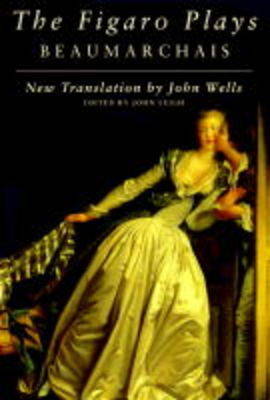A wildly funny and modern translation by one of Britain's top humorists which loses none of Beaumarchais' satirical edge. Figaro, Beaumarchais' most famous character, was a key-factor in inciting the French people to revolt against their lazy aristocracy and the extravagant and selfish French monarchy. In The Barber of Seville (1775) he is a rebellious and scheming servant, caught up in a farcical plot in which lovers test each other. In The Marriage of Figaro (1784), Beaumarchais' anti-aristocratic sympathies come to the fore and Figaro whips the audience up into an indignant frenzy. Beaumarchais was, after all, the son of a humble watch-maker - although, as the late John Wells points out in his introduction, this also means that Beaumarchais' farcical plots and sub-plots work like clockwork. However, the mood of A Mother's Guilt (1792), the last play in the trilogy, is much darker. After the Revolution, Beaumarchais is uncertain what the future will bring. A trade dispute brought Be aumarchais to the notice of the court, and his good looks and eloquence quickly procured him advancement.
He made the most of the opportunities available to him and soon acquired considerable wealth and social success. His Figaro plays reflect the dynamism of his life - and are perhaps most familiar to people today through Mozart's and Rossini's operatic adaptations.
- ISBN10 0460878581
- ISBN13 9780460878586
- Publish Date 9 December 1999 (first published 29 December 1997)
- Publish Status Out of Print
- Out of Print 2 April 2001
- Publish Country GB
- Publisher Orion Publishing Co
- Imprint Weidenfeld & Nicolson
- Edition New edition
- Format Paperback
- Pages 320
- Language English
